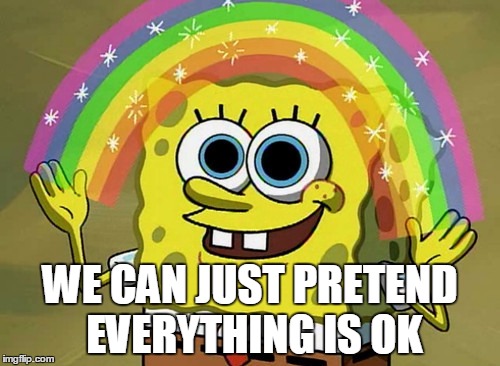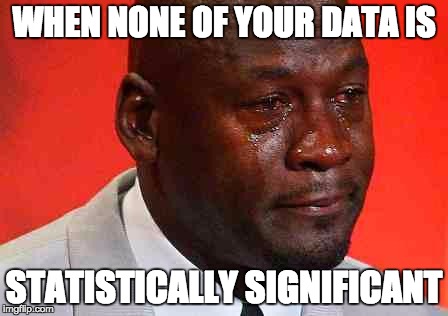I think Mod1 was essentially a 50:50 mixture of this:

and this:

Sometimes I would be sitting in lecture like "yes, I know exactly what is happening this is so great" and the other half of the time, my brain would be sad and refuse to cooperate in my learning endeavors. Also, working with an experimental, newly developed assay that has yet to be studied to death by the other science people of the world? A+. However, having to use new technology that doesn't have a pre-set, fully established protocol for me to follow step by step? Not so A+.
A lot of the time during lab, I felt slightly dissatisfied by the focus on breadth rather than depth. Biology research takes time. So much time. This is just a given fact of life. I understand that the point of the module (and I guess this class overall) is to give us exposure to research techniques and an idea of what Real Science is like, rather than coming up with a cohesive, all-encompassing story and indisputable publication-worthy data. However, as someone who literally spent an entire semester in UROP repeating one experiment over and over again to get a singular figure, a lot of the time, I kind of felt like this:

The homework assignments, in my opinion, for Mod1 were extremely helpful in hindsight. When I was doing them, I was skeptical as to whether they would actually help with writing the Data Summary (like the instructors kept telling us) but to my surprise, they actually did! Wow! I would consider Mod1 a successful introduction to new technologies and a successful start on my journey to trying to answer the question "What even is biological engineering?"






